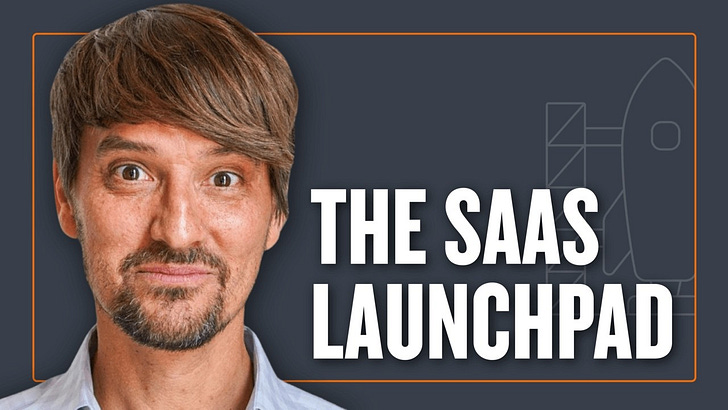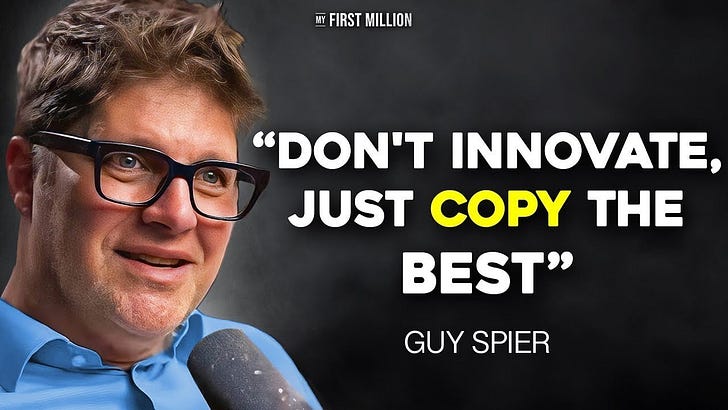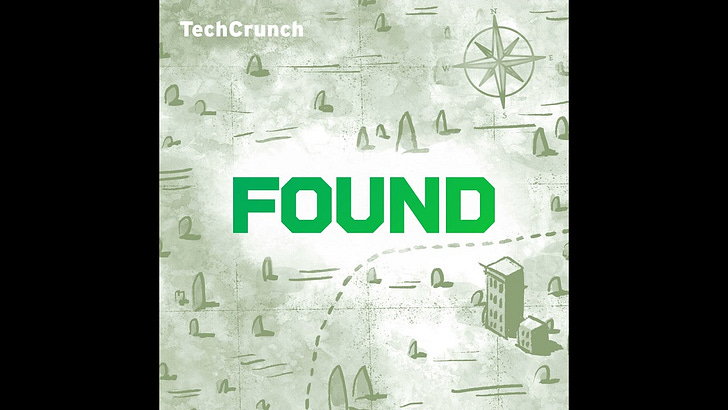"1. Premium App for Kids Learning
2. Remote Learning Opportunities
3. On-demand Expert Network
4. AI-driven Skill Discovery
5. Niche Micro Courses
6. Agency for Creator Services
7. Premium Onboarding Services
8. Mass Affluent Market Products
9. The Facebook of Russia
10. Importing Western Products to Russia
11. Sexy Ravioli
12. The Russian Richard Branson
13. The walking middle finger
14. The guy who won the game and simply stopped playing
15. The Israeli Great Gatsby
16. Hunt Brothers Pizza
17. BUSINESS LEARNING
[0.00] Greg Isenberg_5 game-changing startup ideas from a life hacking genius.txt
Greg Isenberg
5 game-changing startup ideas from a life hacking genius
"## 1. -BUSINESS IDEA- Premium App for Kids Learning
[YouTube Link:
Chris discusses an iPad app designed to teach kids how to read, priced at a staggering $500 per month. He highlights that, despite its basic visuals and limited content, the app effectively teaches his daughter to sound out words. He compares the app\'s price to a $17 book on Amazon containing similar exercises, acknowledging that the app\'s gamified approach and convenience make it appealing despite the high cost. He likens this model to language learning apps like Rosetta Stone and Duolingo, questioning if other educational books could be transformed into premium apps. Chris explores the potential to tap into the lucrative market of parents willing to invest in their children\'s development. He suggests creating a suite of apps targeting various milestones, like spelling, writing, math, and language, leveraging App Store Optimization (ASO) to capture relevant searches.
## 2. -BUSINESS IDEA- Remote Learning Opportunities
[YouTube Link:
Chris proposes exploring remote learning opportunities leveraging global talent and cost of living discrepancies. He suggests identifying a country\'s expertise (e.g., India for yoga) and developing remote learning products or services. He cites Cambly (online English classes) and Fitter (remote personal trainers in India) as examples. Chris further explores the potential of using sensors and remote coaching for physical activities like hockey and baseball, questioning the necessity of in-person coaching. He envisions a future where specialized remote experts provide real-time feedback based on sensor data, leveraging technology to create accessible and affordable learning experiences.
## 3. -BUSINESS IDEA- On-demand Expert Network
[YouTube Link:
Chris highlights the difficulty of finding readily available expert advice for specific problems, pointing out the existing gap between expensive consultations and time-consuming DIY research. He recalls failed attempts by companies like Google Helpouts and venture-backed startups to create on-demand expert networks, emphasizing that the concept remains promising despite past failures. While acknowledging the growing capabilities of AI chatbots like ChatGPT, Chris believes that human expertise remains crucial for practical tasks like plumbing and electrical work. He predicts that this demand will eventually be met, as the right platform and connection mechanism emerge.
## 4. -BUSINESS IDEA- AI-driven Skill Discovery
[YouTube Link:
Challenging the traditional advice of \"follow your passion,\" Chris emphasizes the importance of identifying passions through self-reflection and experimentation. He suggests applying product management techniques to self-discovery, interviewing friends, colleagues, and family to gain a clearer understanding of one\'s strengths and interests. He posits that AI could be a valuable tool in this process, prompting users with targeted questions and guiding them toward potential business ideas aligned with their passions.
## 5. -BUSINESS IDEA- Niche Micro Courses
[YouTube Link:
Chris champions the creation of highly specific micro-courses catering to niche interests. He advocates for moving beyond broad topics to focus on smaller, well-defined areas where a unique perspective can be offered. He cites a friend\'s micro-course on redeeming miles and points specifically for trips to Japan and the Maldives as an example of this approach. Chris believes that increasingly sophisticated search algorithms and content discovery tools favor this niche strategy, allowing creators to better target their audience and break through the noise of generalized content.
## 6. -BUSINESS IDEA- Agency for Creator Services
[YouTube Link:
Chris suggests an agency model that helps established creators expand into new content formats or platforms. He uses the example of partnering with a hockey influencer who lacks writing experience to build a successful writing platform for them. This agency would leverage its expertise to build out the new function (e.g., newsletters) and then leverage that success to attract other creators, creating multiple revenue streams. This allows aspiring creators to gain valuable experience, access a larger audience, and share in the upside while providing established creators with a turn-key solution for expansion.
## 7. -BUSINESS IDEA- Premium Onboarding Services
[YouTube Link:
Chris proposes an agency specializing in premium onboarding calls for companies with complex products, particularly those charging recurring revenue. He believes this service would be highly valuable for products like Notion, where users often struggle to fully utilize the platform\'s capabilities. This agency would recruit talented onboarding specialists, potentially from successful companies like Superhuman, to develop a specialized onboarding methodology. By demonstrating a significant increase in user retention and customer lifetime value, the agency could command premium fees, effectively becoming an outsourced onboarding department for these companies.
## 8. -BUSINESS IDEA- Mass Affluent Market Products
[YouTube Link:
Chris identifies an emerging opportunity in targeting the \"mass affluent\" market\342\200\224individuals with disposable income who are willing to pay a premium for enhanced services and experiences. He cites Mercury\'s launch of a $240 per year personal banking service as a prime example. He argues that this demographic, typically younger and digitally savvy, desires premium features and experiences traditionally reserved for high-net-worth individuals but are underserved by existing offerings. This could include products like premium banking, email services (Superhuman), or transportation (Uber Lux/Black). He encourages listeners to identify industries with a race to the bottom where a more premium offering could create a successful business.
"
[372.53] My First Million_The 5 Most Interesting Billionaires Alive....txt
My First Million
The 5 Most Interesting Billionaires Alive...
"## 1. BUSINESS IDEA - The Facebook of Russia
[YouTube Link:
This business idea is about creating a social networking platform similar to Facebook, specifically targeted at the Russian market. The inspiration comes from Pavel Durov, who built VK, the \342\200\234Facebook of Russia\342\200\235, and successfully competed with Facebook in the region. Durov refused to share user data with the Russian government and ultimately lost his company, but went on to create Telegram, a secure messaging app with a billion users. The discussion highlights the potential of building localized social networks, the importance of user privacy, and the opportunity to leverage encryption and secure messaging features. It also emphasizes the challenges of navigating government regulations and the potential for financial success through user donations and debt financing while refusing equity sales. The discussion provides insights into Durov\342\200\231s unconventional approach to business, including his lean team, his unique hiring process through coding contests, and his refusal to engage in traditional advertising or monetization strategies.
## 2. BUSINESS IDEA - Importing Western Products to Russia
[YouTube Link:
This business idea focuses on importing Western products and trends into Russia, capitalizing on the demand for American goods after the fall of the Soviet Union. The idea is inspired by Oleg Tinkoff, a Russian entrepreneur who successfully imported and sold blue jeans, electronics, and other Western goods in the early 1990s. He later replicated this model with his microbrewery, Tinkoff Breweries, by introducing American-style beer to Russia. The discussion emphasizes the profitability of recognizing and fulfilling demand for foreign goods, particularly in markets transitioning to a more open economy. Tinkoff\'s focus on marketing and branding, his willingness to challenge the status quo, and his strategic partnerships with Western businesses are highlighted as key factors in his success.
## 3. BUSINESS IDEA - Sexy Ravioli
[YouTube Link:
This business idea centers on creating a unique and provocative brand for traditional Russian food, specifically ravioli. Oleg Tinkoff\'s approach to rebranding ravioli as a \"sexy\" food, with a controversial ad campaign featuring a woman\'s backside covered in flour, is used as an example. The discussion touches upon the power of unconventional marketing to capture attention and create buzz, especially for products typically associated with a traditional image. It also highlights the potential for differentiating food products through branding and challenging established perceptions.
## 4. BUSINESS IDEA - The Russian Richard Branson
[YouTube Link:
This discussion focuses on building a brand around an individual\'s personality, specifically inspired by Oleg Tinkoff\342\200\231s approach of naming multiple businesses after himself and using his public persona to drive marketing and brand awareness. His journey from selling blue jeans to launching a microbrewery and establishing Tinkoff Bank, highlights the potential of leveraging personal charisma and a strong public image to establish a recognizable brand across different ventures. Tinkoff\'s outspokenness against the Russian government and his subsequent financial losses underscore the risks associated with this approach, but also highlight his commitment to his values and his ability to build a loyal following.
## 5. BUSINESS IDEA - The walking middle finger
[YouTube Link:
This business idea explores the concept of building disruptive companies that challenge existing industries and norms, as exemplified by Sean Parker\342\200\231s career trajectory. The discussion delves into his early success with Napster, a revolutionary but ultimately illegal music-sharing platform, and how his experience shaped his later investments in groundbreaking companies like Facebook and Spotify. The core idea revolves around identifying transformative technologies and companies that challenge established practices, even if they face legal and regulatory hurdles. The discussion highlights the importance of foresight, risk-taking, and the ability to identify game-changing innovations before they become mainstream. It also explores Parker\'s unconventional approach to philanthropy, using a venture capital model to fund high-risk, high-reward research projects aimed at curing cancer.
## 6. BUSINESS IDEA - The guy who won the game and simply stopped playing
[YouTube Link:
This business idea emphasizes the value of recognizing personal fulfillment and prioritizing experiences over relentless pursuit of financial success. The discussion focuses on Tom Anderson, the co-founder of Myspace, who sold his company for a significant sum and subsequently chose to step back from the tech world to pursue personal passions like photography, travel, and leisure. This approach contrasts with the typical trajectory of successful entrepreneurs who often continue to seek new ventures or engage in philanthropy. Anderson\'s story highlights the importance of recognizing personal satisfaction and choosing to prioritize experiences and personal growth over traditional measures of success.
## 7. BUSINESS IDEA - The Israeli Great Gatsby
[YouTube Link:
This business idea centers on building wealth and influence through strategic networking and leveraging personal charisma to gain access to lucrative opportunities. The discussion focuses on Vivy Neo, a mysterious figure known for his connections to powerful individuals in the worlds of finance, entertainment, and technology. While the source of his wealth remains unclear, his story highlights the potential of cultivating a strong network and using personal charm to gain access to exclusive deals and investment opportunities. The discussion also explores the power of crafting a compelling personal brand and using it to build credibility and influence, even if the details are shrouded in mystery.
"
[700.74] My First Million_The $540 Million A Year Pizza Business.txt
My First Million
The $540 Million A Year Pizza Business
"## 1. BUSINESS IDEA - Hunt Brothers Pizza
[YouTube Link:
This business idea involves a pizza restaurant concept similar to Hunt Brothers Pizza. This company has established itself as a major player in the pizza industry, boasting 9,000 stores and generating over 500 million dollars in annual revenue. Their business model centers around small-footprint pizza outlets (50-100 sq ft) located within existing businesses such as convenience stores and gas stations. This integration allows these businesses to offer a new product line without significant overhead costs.
Hunt Brothers Pizza utilizes a unique approach that deviates from traditional franchise models. For an initial investment of 10 thousand dollars for the equipment, businesses can offer Hunt Brothers Pizza without being burdened by contracts, licensing fees, or royalty fees. The only requirement is sourcing the ingredients directly from Hunt Brothers Pizza, ensuring quality control and brand consistency. This approach has proven to be highly successful, allowing Hunt Brothers Pizza to rapidly expand their reach and establish a strong market presence.
"
[763.63] Noah Kagan_Why Brazil Hasn't Won A World Cup in 20 Years.txt
Noah Kagan
Why Brazil Hasn't Won A World Cup in 20 Years
"## **1. BUSINESS IDEA - BUSINESS LEARNING**
[YouTube Link:
This business learning centers around the idea of \"the perfect field syndrome.\" The speaker uses the example of the Brazilian soccer team to illustrate this point. Brazil used to produce the best soccer players globally because their fields were rough and uneven. This forced players to be more adaptable, reactive, and tough. However, as fields became perfect, the quality of players declined because they were no longer challenged and couldn\'t handle unexpected situations. This principle applies to life and business \342\200\223 facing challenges and adversity builds resilience and adaptability, ultimately leading to greater success. This concept challenges the pursuit of ease and comfort, emphasizing that embracing chaos and difficulty can be more beneficial in the long run.
"











